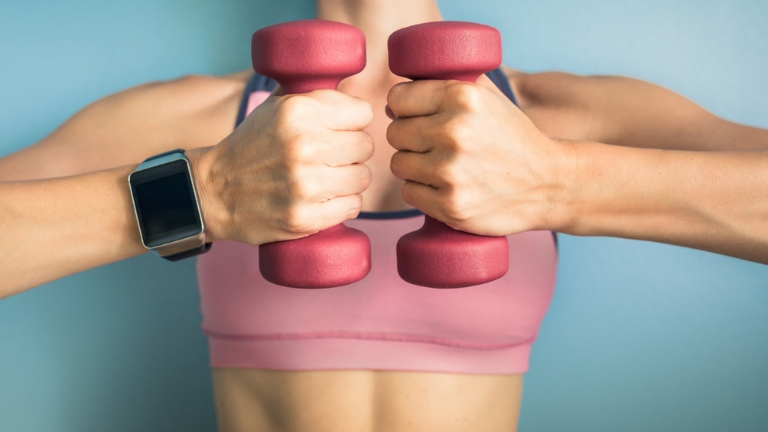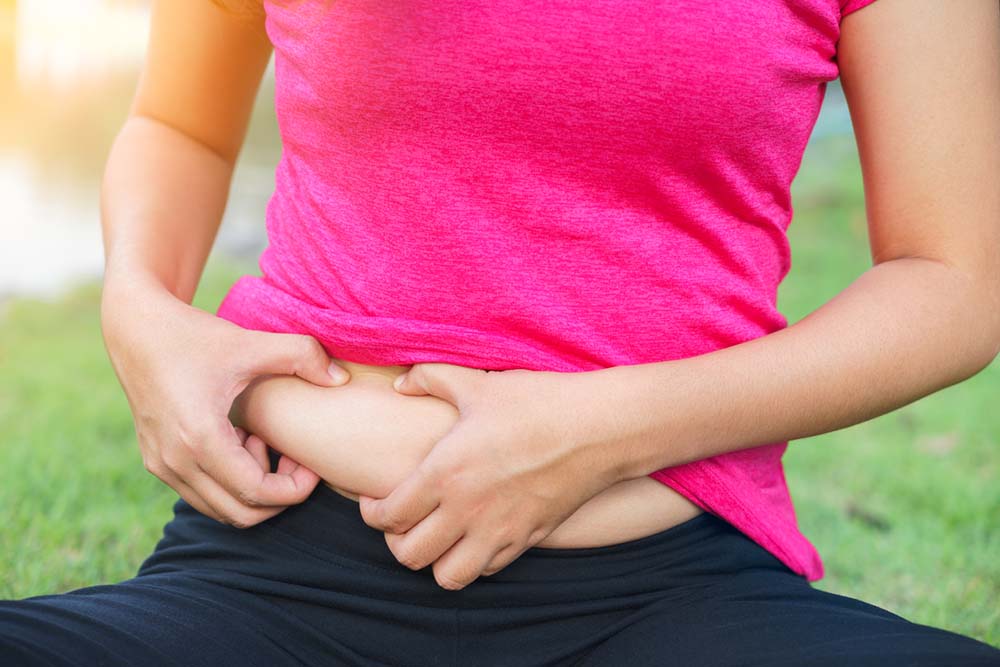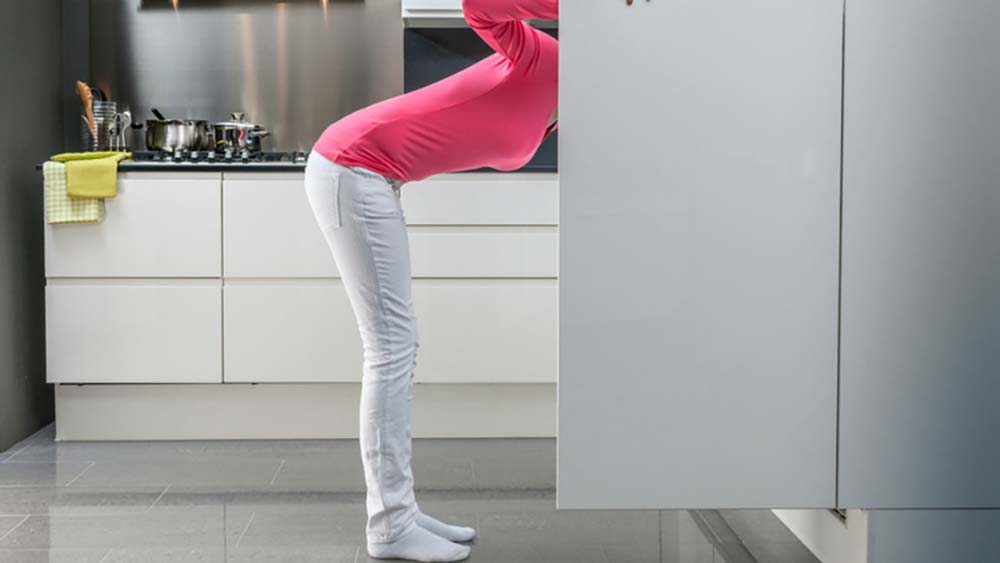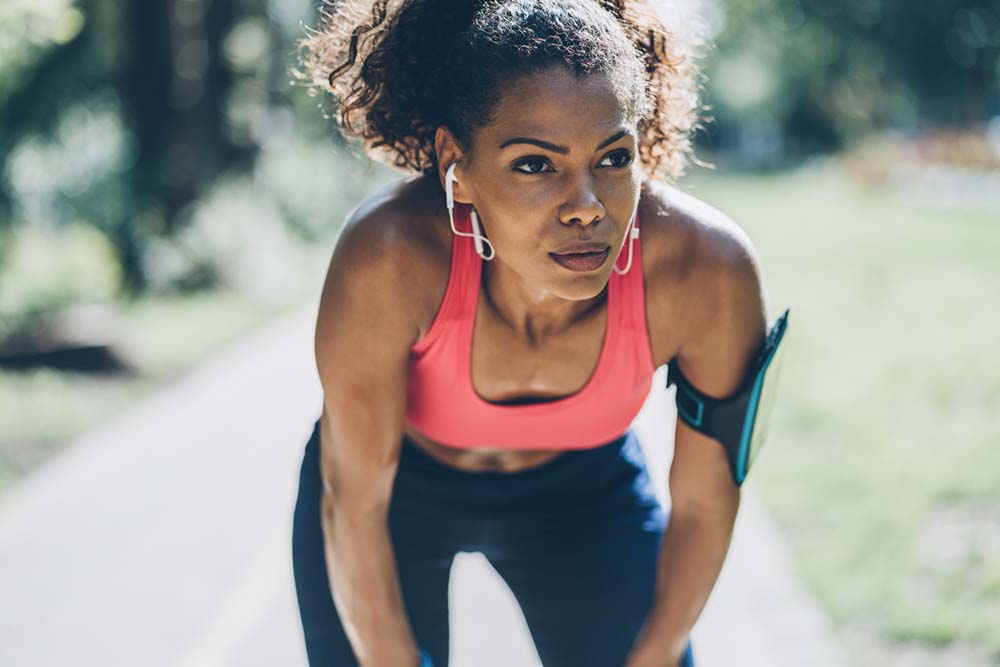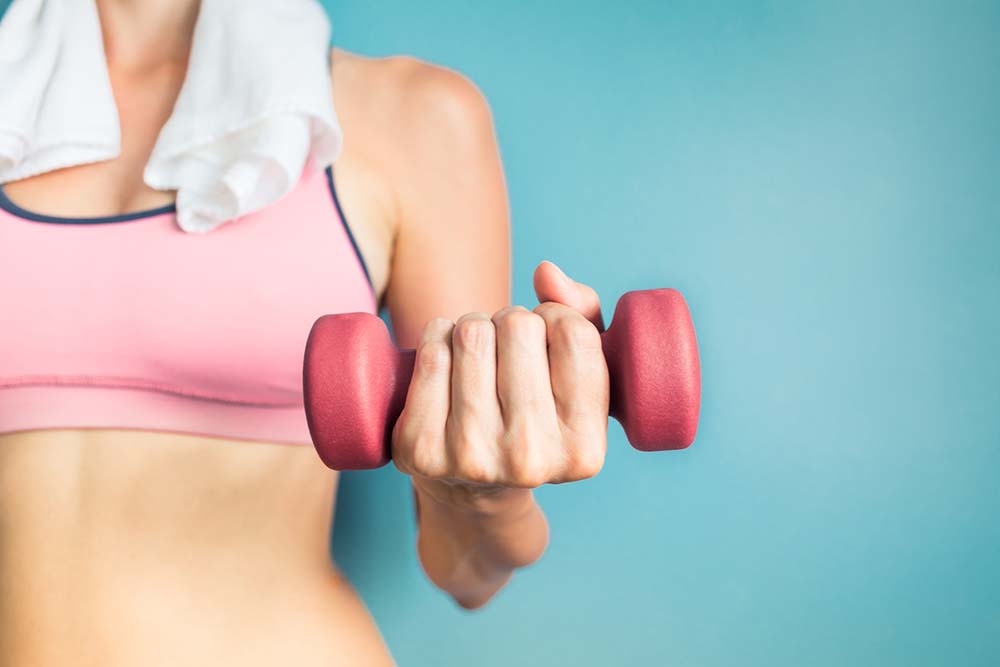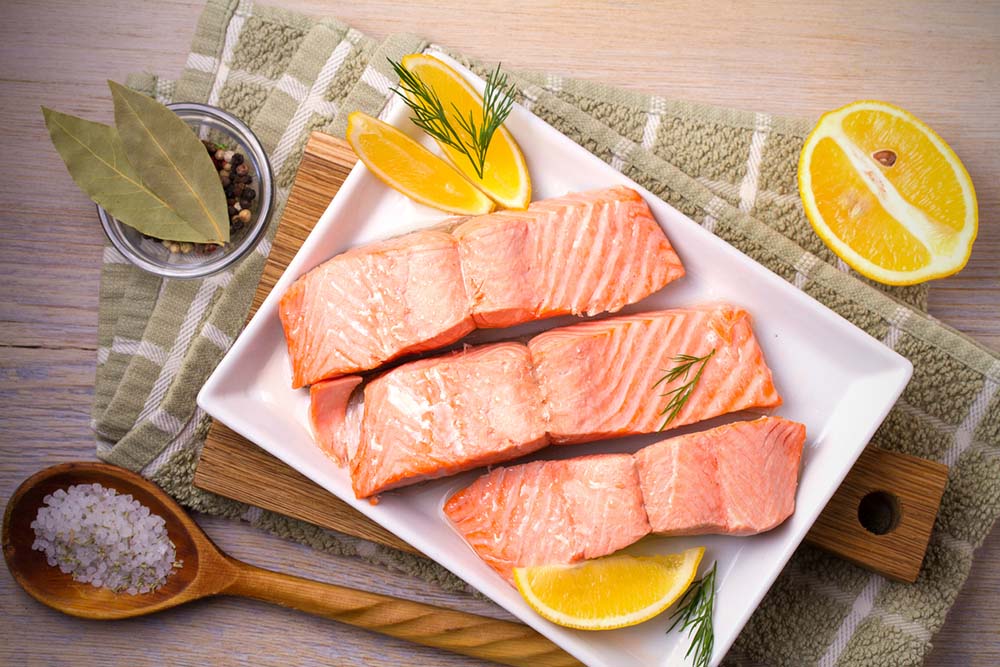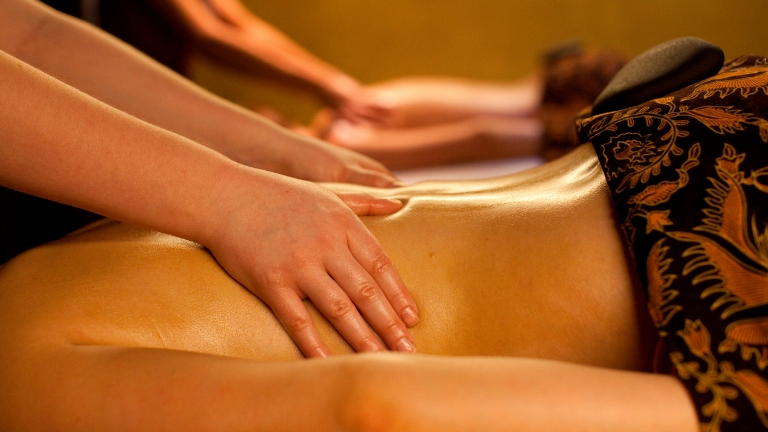A hormonal imbalance can result in bloating, sore breasts, headaches, skin issues and more – but a few simple lifestyle hacks are proven to help. Editor Anna Magee talks to the experts
Swollen breasts. Sleep disturbances. Bloating. They’re all symptoms typically associated with that wonderfully vague term, ‘hormonal’. But hormones control so much more from our appetites to our moods to our weight. Anyone who gets pre-menstrual syndrome (PMS) or feels like she is approaching – or has reached – menopause will probably agree.
Hormones control so much more from our appetites to our moods to our weight.
Thankfully, we now know more than ever about the specific diet and exercise practices that can balance out our hormones and positively influence our wellbeing.
‘Most types of hormone imbalances tend to stem from a combination of blood sugar problems, being excessively under- or overweight, high or very low body fat, chronic stress, disrupted sleep, poor digestion and thyroid dysfunction,’ says BioCare Clinical Nutritionist Ellie Isom.
Our hormones are little signallers that should work in synergy with each other, which is why, something wrong with your thyroid might not only affect your weight but also your levels of PMS. It’s the reason why your lifestyle can impact many of these hormone interactions, causing a multitude of symptoms and why making a few hormone-friendly changes can help the overall balance of hormones in your body.
3 signs of a hormonal imbalance
First, some typical symptoms of unbalanced hormones and then, exactly what to do about them.
You’re gaining weight – especially around the middle
‘Women experience substantive hormonal changes as they move through perimenopause (the decade in the lead up to menopause), menopause and beyond,’ says Dr Sara Gottfried, the three time New York Times bestselling author of The Hormone Cure, The Hormone Reset Diet and her latest book, Younger (her upcoming book, The Brain Body Diet will be released on March 5th, 2019). Mostly these changes hit after 40, sometimes subtle, dramatic, she asserts.
‘Oestrogen is the master regulator of the female body, but while the major hormonal transition that we associate with this time is a decline in oestrogen, other hormones are also in a state of flux, especially thyroid hormones and the stress hormone cortisol,’ Dr Gottfried explains.
If you’re wondering what that means, think three words: middle-aged spread. ‘These changes lead to metabolic slowing as we age, which in turn causes women to gain weight, particularly around their middle; the so-called middle-aged spread of ‘menopause belly’,’ she asserts.
Studies have shown that loss of oestrogen in post-menopausal women is linked with increased abdominal fat. But this is compounded by increases in the stress hormone cortisol, which tends to begin at 50. ‘High cortisol triggers blood sugar problems which can lead to mood swings and the storage of belly fat,’ Dr Gottfried explains.
Your PMS is monstrous
Conditions such as irritable, aggressive PMS may be a sign of excessive oestrogen levels, also known as oestrogen dominance. Other signs can be heavy, painful periods, water retention, endometriosis, headaches or migraines and benign breast cysts, as well as oestrogen-receptive (ER) breast cancers (these are stimulated to grow by oestrogen and account for around 70 per cent of all breast cancers).
Ironically, your PMS can get much worse in the lead up to menopause. ‘There is a perception that the road to menopause is marked by a continuous decline in oestrogen, but in the years preceeding it – the perimenopause – oestrogen is in decline but still dominant in relation to its partner hormone, progesterone’, Dr Gottfried explains.
Your PMS can get much worse in the lead up to menopause.
‘This oestrogen dominance is not only behind the heightened premenstrual symptoms that some women experience as they edge closer to menopause, but it’s also a risk factor for breast cancer and Type-2 diabetes.’
You can’t stop eating
‘Insulin is the hormone that drives glucose into cells as fuel and deposits fat,’ Dr Gottfried explains. Over the years, our cells can become more resistant to insulin, causing what is known as insulin resistance.
This can have a knock-on effect on leptin, an appetite regulating hormone that signals fullness. ‘Elevated insulin levels eventually lead to elevated leptin. Consistently elevated leptin levels lead to a dysfunction of leptin receptors and they stop sending signals to the brain to tell you to stop eating. So, you do the exact opposite of what leptin is designed to control, and you continue to eat and eat and eat, never receiving the signal to stop.’
‘Because insulin resistance and a rising fasting blood glucose level are common as we move into our 40s, keeping your blood sugar stable is one of the most important things you can do to reduce your risk of weight gain, type 2 diabetes, and cardiovascular disease,’ Dr Gottried asserts.
7 lifestyle hacks that will balance your hormones
If any of the above symptoms apply to you, the simple changes below have all been proven to help hormone balance.
Try Intermittent Fasting
‘I recommend intermittent fasting (IF) as part of my hormone-balancing, anti-aging protocols,’ says Dr Gottfried.
On Intermittent Fasting, or IF you have fasting windows; periods of time during a typical day in which you stop eating. In the 16:8 version of IF you would stop eating at 8pm and then start again at noon the next day. In the 14:10 version, you might stop eating at 7pm and start eating again at 9am.
‘Diets that include some form of fasting, such as intermittent fasting, can help with weight loss or management, and therefore help to improve hormones,’ says BioCare Clinical Nutritionist Ellie Isom. ‘They can also help with blood glucose regulation which is key for supporting hormonal balancing’.
Add HIIT to your workout – especially fasted
There is a lot of attention being paid to High-Intensity Interval Training (HIIT) these days and it is effective in regulating insulin levels, says Dr Gottfried. ‘HIIT exercises make your muscles hungry for glucose, which helps to regulate insulin levels and improve insulin resistance as well as build muscle’.
HIIT exercise could look like this: walk briskly for two minutes alternating with jogging for two minutes (for a total of twenty minutes) or bicycle fast for bursts of one minute alternating with a slower pace for one minute for a total of thirty minutes,’ she suggests.
Dr Gottfried says doing your HIIT in the fasting window during Intermittent Fasting (see above) – that is, probably in the morning for you start your ‘feeding’ period – can also help your longevity. ‘Studies show that when you exercise intensely for five to thirty minutes while still fasting, you are most likely to reset mTOR, one of the major longevity genes.
‘In addition to regulating mTOR, exercise makes your receptors more sensitive to insulin, gets your blood sugar under control, and helps you build more muscle. The combination of intermittent fasting followed by high- intensity exercise (see below) will boost your levels of human growth hormone and another hormone known as irisin, both of which help to build muscle and regulate both insulin and oestrogen.’
Move more and if you can, lift
If you do nothing else for your hormones get moving. ‘Exercise can reverse the trend of oestrogen dominance not only help reduce your waistline but also your risk of breast cancer,’ says Dr Gottfried.
In fact, one review of 18 randomised clinical trials published in 2015 concluded that regular exercise – especially when it was high intensity, lowered levels of circulating oestrogen in women.
Get lifting for your hormones too. ‘Putting your muscles to work helps to benefit your entire endocrine (hormone) system,’ says Dr Gottfried. ‘This is because muscle serves as another endocrine organ that plays a key role in metabolism by talking to other organs such as the fat tissue, brain and liver and most certainly by releasing hormones.
One such hormone is irisin. If you haven’t heard of irisin, expect to in the next 12 months as researchers learn more and more about what is now being dubbed the ‘exercise hormone’.
‘Irisin is secreted from muscles in response to exercise and builds muscle, activates weight loss and can reduce your risk of Type 2 diabetes,’ Dr Gottfried asserts.
Keep your carb intake low
‘Intermittent Fasting, coupled with a low carbohydrate, high (good) fat, ‘Paleolithic’, or even ketogenic diet [low carb, no sugar, high fat and protein] diet that involves such time-restricted feeding or avoidance of snacking can help to modulate insulin secretion, metabolism, and reduce inflammation,’ says Ellie Isom, especially if you pair it with adequate exercise, rest and recovery.
Keeping your carb intake low doesn’t mean cutting carbs altogether. Curbing or cutting out sugary carbohydrates will indeed help, as will avoiding refined carbohydrates. But small portions of low-glycaemic index (GI) carbohydrates such as sweet potato, quinoa and brown rice eaten once or twice a day won’t upset your low carb efforts and keep your blood sugar and energy stable. Just remember to eat lots of vegetables too.
Vitamin B6, magnesium and essential fats
This particular mix of nutrients, especially taken together, can help regulate our reproductive hormones, manage stress and reduce any inflammation that may be present as all of these can occur as a result of stress that is teamed with high oestrogen levels, Ellie Isom asserts.
Vitamin B6 is particularly useful at reducing PMS symptoms, because it helps modulate the biological effects of oestrogen.
‘Consuming foods higher in these nutrients, or supplementation can be beneficial for those suffering with PMS,’ Isom asserts.
Dietary sources include oily fish, nuts and seeds, green leafy vegetables, avocados, beans and pulses. Or you could supplement with BioCare’s Mega EPA and Mega GLA Complex for a great dose of both omega 3 and 6, and the P-5-P Complex for magnesium, zinc and vitamin B6.
Vitamin B6 is particularly useful at reducing PMS symptoms, because it helps modulate the biological effects of oestrogen. ‘It does this by decreasing the cell’s response when oestrogen binds to its receptors,’ Isom explains.
Get your mood nutrients
Your mood is governed by hormones and neurotransmitters which can have a beneficial effect on mood. These include serotonin, dopamine and gamma amino-butyric acid (GABA), Isom explains.
‘Serotonin is involved in mood, with low levels being associated with depression, whilst GABA is seen as the ‘inhibitory’ neurotransmitter, which is involved in relaxation,’ Isom says.
Brain neurotransmitters like these need amino acids to be produced. Our bodies can make some of these, however we need to get MOST of them from food, specifically, quality dietary protein sources.
‘For example, for serotonin production, we require the amino acid tryptophan, which is an essential amino acid (one our body cannot produce),’ Isom explains. This can be found in foods such as turkey, salmon, eggs, nuts and seeds. ‘Raising your tryptophan levels may curb PMS-related cravings by supporting serotonin production,’ Isom asserts.
Alongside amino acids, certain vitamins and minerals are essential to the production of the hormones your brain needs for stable mood, in particular B vitamins, zinc and magnesium, especially found in green leafy vegetables, nuts and seeds.
Eating a balanced diet with a range of protein sources, fruit and vegetables is key to ensuring you have all the nutrients you need for the production of these mood-balancing and regulating hormones, Isom asserts.
If you feel as though you are in need of further support, or have a restricted diet think about supplementing with B vitamins, tryptophan or 5-HTP (5-hydroxytryptophan). Try BioCare’s NT Intensive, which contains ingredients such as tryptophan, lemon balm and magnesium, or their Methyl B Complex for an optimum dose of B vitamins, provided in the most bioavailable forms.
If you’re menopausal, opt for phytoestrogens
You probably don’t need to be told that the symptoms of oestrogen decline that signal you’re close to, or have already entered the menopause. Think, hot flushes, low libido, fatigue, loosening skin elasticity, low mood, depression, more dull, dry hair or even hair loss and impaired concentration as well as irregular period and more intense PMS.
‘Most British women will go through their menopause between 45 and 55 but clinically we are seeing more women experiencing early menopause,’ says Ellie Isom.
Phytonutrients such as sage, alfalfa and red clover have all been shown to help reduce hot flushes.
Certain nutrients known as phytoestrogens (isoflavones) have been shown to help moderate menopausal symptoms because they behave in the same way as oestrogen in the body, but come from plant sources, and are more gentle and block more stimulating oestrogens from binding.
Phytonutrients such as sage, alfalfa and red clover have all been shown to help reduce hot flushes and also the vaginal atrophy, disturbed sleep and loss of bone health that occurs during menopause, Isom asserts.
Other phytoestrogen sources that have been shown scientifically to help reduce menopausal symptoms include licorice, hops, and celery seed.
BioCare’s FemForte® Balance is a potent mix of botanical extracts, suitable for women during and after childbearing age. It contains high levels of red clover, providing a natural source of isoflavones, as well as a mix of green tea, beetroot and broccoli extracts.
More Healthista Content:
This former model says taking adaptogens could change your life
Karl Lagerfeld lost 93 pounds in 13 months with this strange diet psychology
10 best vegan alternatives to your favourite treats
WIN an overnight spa stay worth £279 by taking our 5-minute survey
Do you want to experience ultimate relaxation? To be in with a chance to win an overnight spa stay for two including treatments and meals, complete our five minute survey about how your gut health affects your relationships
Like this article? Sign up to our newsletter to get more articles like this delivered straight to your inbox.



